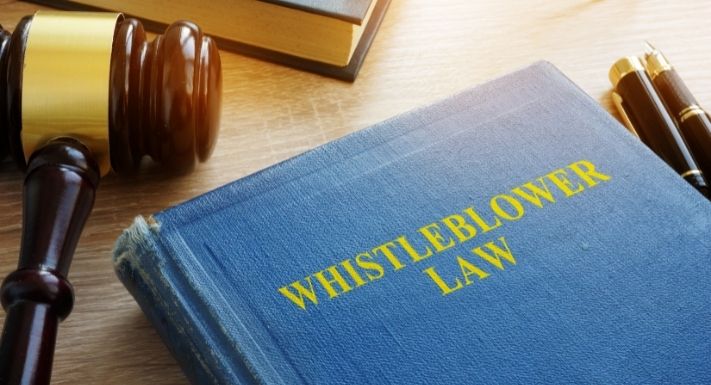
5 Tips for Reporting Unpaid Wages in Idaho
November 23, 2021
How Are Unpaid Wages Treated in Bankruptcy?
December 16, 2021Have you recently exposed any fraudulent, dangerous, or otherwise unethical actions by your company? At this point, you may worry that you’ll be fired or demoted for speaking out, but the law does grant you some protections. Workplace retaliation lawyers build their careers on protecting folks who know they’re doing what’s right. But what protections are in place for whistleblowers? Let’s look at some specifics.
Who’s Protecting Me?
There are five federal agencies in charge of anti-retaliation laws:
- OSHA (Occupational Safety and Health Administration) has over 20 anti-retaliation statutes and is dedicated to ensuring safe working conditions at every workplace. If you’ve spoken out against dangerous conditions that go unchecked, OSHA grants you protection.
- MSHA (Mine Safety and Health Administration) deals specifically with safety concerns in mines.
- WHD (Wage and Hour Division) enforces diligent record-keeping to ensure that employers pay you fairly for your labor. If you blow the whistle on a supervisor who’s not paying you fairly or at all, these are the folks who will have your back.
- OFCCP (Office of Federal Contract Compliance Programs) holds federal contractors responsible for promoting diversity and enforcing anti-discrimination policies. If you are employed by the government and expose to the public that your employer is openly racist, the OFCCP can back you up.
- VETS (Veterans’ Employment and Training Services) works to ensure stable careers and adequate resources for our country’s veterans. VETS protects veterans against discrimination due to their status.
How Do I Protect Myself?
Navigating a whistleblower case against your workplace on your own can feel intimidating. You don’t want your job to slip between the cracks. The best way to ensure your protection is to hire a workplace retaliation lawyer with a strong working knowledge of retaliation cases. An experienced attorney can guide you through the legal process and talk through your options with you.
Plus, if you have a reasonable belief that your employer will retaliate against you, let them know that you’ve got an attorney. They may think twice about firing you if they know you have stellar legal counsel.
How Am I Protected?
The protections in place for whistleblowers will shield you against adverse outcomes at your job due to your speaking out. If you blew the whistle on genuine concerns, like unsafe working conditions or a history of unpaid labor, your employer can’t fire or demote you as a consequence.
If you spoke up about criminal activity in your workplace, whistleblower protection laws may also grant you some immunity from criminal prosecution, depending on your role in the activity.
Don’t be afraid to blow the whistle on your employer if they engage in unsafe or unethical activity. The public deserves to know that information, and you shouldn’t have to pay a price to reveal it. Call Rossman Law Group today and lay out your case.





